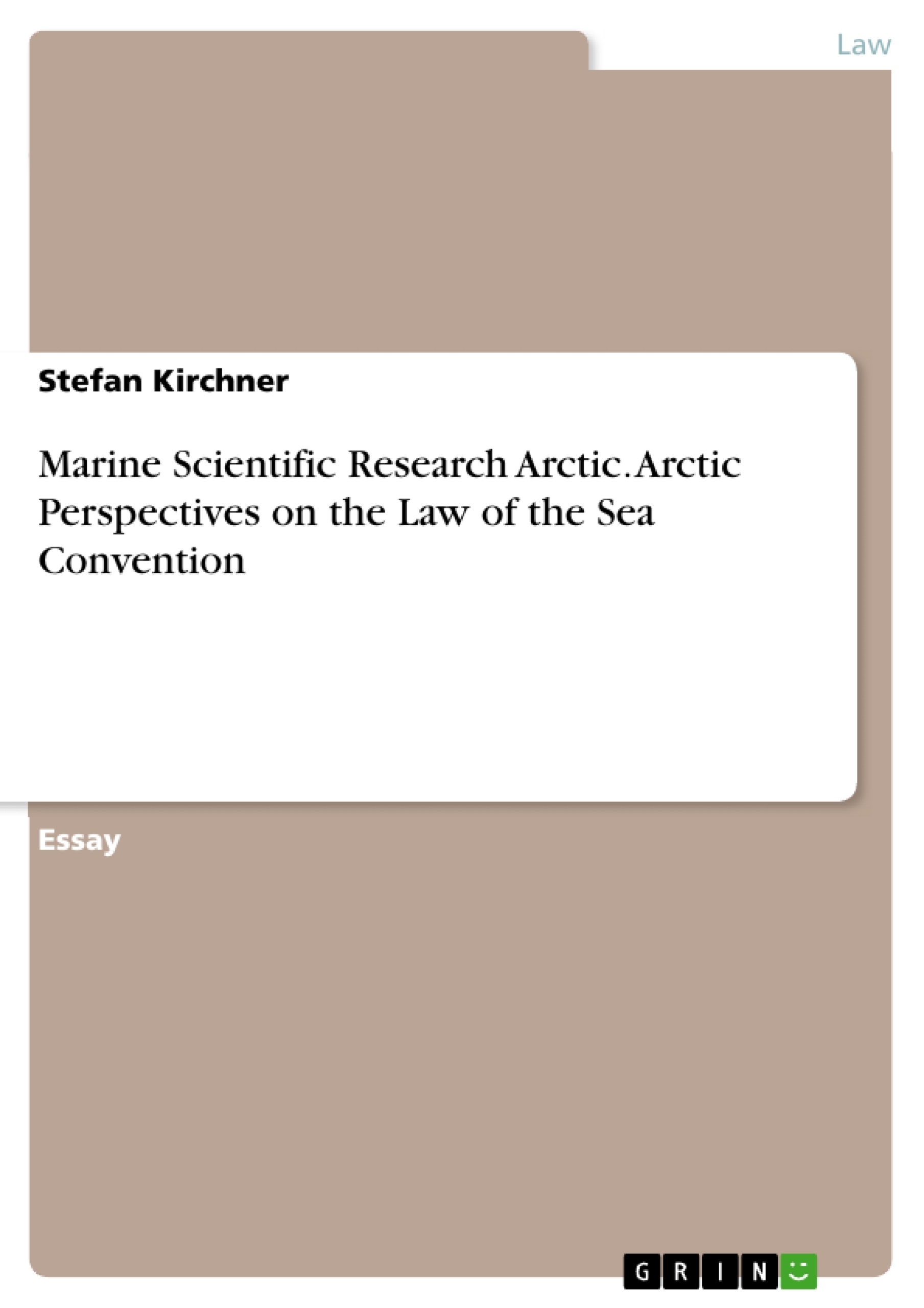This short essay introduces the reader to the aspects of the United Nations Convention on the Law of the Sea, often simply referred to as the Law of the Sea Convention (LOSC) which are often overlooked but which play a crucial role already today and which are bound to become more important in the future. Marine scientific research is no longer merely of academic interest. Oil, gas, fish and in the near future also natural resources at the sea bed are important economic factors. In particular in the Arctic Ocean, which is becoming more accessible due to climate change and the fast decline of the sea ice cover, competing claims to the sea provide new challenges.
These conflicts include the territorial dispute between Denmark (which despite Greenland’s increased autonomy retains control over the island’s foreign affairs) and Canada over Hans Island, At the time the 1982 Convention was drafted, the idea that commercial mining of the Deep Sea Bed was just around the corner. While the technological development immediately after the adoption of the Law of the Sea Convention took longer than had been thought initially, advances in recent years have made deep sea mining a more realistic possibility.
Indeed, several claims have been staked around the world. A distinction has to be made between claims to the Continental Shelf (which is not to be confused with the Deep Sea Bed) as an extension of the sovereignty of the state over the land on one hand and usage rights in parts of the Deep Sea Bed on the other.
Inhaltsverzeichnis (Table of Contents)
- Marine Scientific Research in the High Seas
- Arctic Perspectives on the Law of the Sea Convention
- The Law of the Sea Convention and Marine Scientific Research
- The Arctic Ocean: A New Frontier for Marine Scientific Research
- International Cooperation in Marine Scientific Research
- Fundamental Principles of Marine Scientific Research
- The Importance of Environmental Protection
Zielsetzung und Themenschwerpunkte (Objectives and Key Themes)
This essay explores the often overlooked aspects of the United Nations Convention on the Law of the Sea (LOSC) related to marine scientific research, emphasizing their growing significance in the context of a changing Arctic environment. The essay examines the Convention's provisions on the right to engage in marine scientific research, international cooperation in this field, and the fundamental principles governing such research.
- The right to engage in marine scientific research under the LOSC
- The role of international cooperation in promoting marine scientific research
- The fundamental principles governing marine scientific research, including peaceful purposes, environmental protection, and respect for the rights of others
- The importance of environmental protection in the context of marine scientific research in the Arctic
- The challenges and opportunities presented by the changing Arctic environment for marine scientific research
Zusammenfassung der Kapitel (Chapter Summaries)
- The essay begins by introducing the reader to the aspects of the Law of the Sea Convention that are often overlooked, but which are becoming increasingly relevant in the context of a changing Arctic environment. This includes the right to engage in marine scientific research, international cooperation in this field, and the fundamental principles governing such research.
- The essay then turns to the specific challenges and opportunities presented by the changing Arctic environment for marine scientific research. This includes the growing importance of the Arctic Ocean as a source of natural resources, the increasing accessibility of the region due to climate change, and the potential for conflict over these resources.
- The essay concludes by emphasizing the importance of international cooperation in promoting marine scientific research in the Arctic. This includes the need to ensure that such research is conducted in a responsible manner that respects the environment and the rights of others.
Schlüsselwörter (Keywords)
The essay focuses on the intersection of marine scientific research, the Law of the Sea Convention, and the Arctic environment. Key themes include the right to engage in marine scientific research, international cooperation, environmental protection, and the challenges and opportunities presented by a changing Arctic environment.
Frequently Asked Questions
What is the Law of the Sea Convention (LOSC)?
It is an international treaty from 1982 that establishes a legal framework for all marine and maritime activities, including marine scientific research.
Why is the Arctic Ocean a "New Frontier" for research?
Due to climate change and melting sea ice, the Arctic is becoming more accessible for resource exploration (oil, gas) and scientific study.
What are the fundamental principles of marine research under LOSC?
Research must be conducted for peaceful purposes, using appropriate scientific methods, and without unjustifiably interfering with other legitimate uses of the sea.
What is the difference between the Continental Shelf and the Deep Sea Bed?
The Continental Shelf is an extension of a state's sovereignty over land, while the Deep Sea Bed is considered the "common heritage of mankind."
Is environmental protection mandatory in marine research?
Yes, the LOSC emphasizes the protection and preservation of the marine environment as a crucial factor in all scientific activities.
- Quote paper
- Stefan Kirchner (Author), 2015, Marine Scientific Research Arctic. Arctic Perspectives on the Law of the Sea Convention, Munich, GRIN Verlag, https://www.grin.com/document/302648



